Working Class Spontaneity, Labor Organization, and Revolutionary Subjectivity
“Working Class Spontaneity, Labor Organization, and Revolutionary Subjectivity” is a paper contributed by Immanuel Ness to the LENIN ONLINE, a series of Internet-based presentations organized by ILPS Philippines and BAYAN to commemorate Lenin’s 150th birth anniversary. The author Immanuel Ness is professor of Political Science at Brooklyn College, City University of New York. He is also a member of ILPS Commission 11, on the rights of teachers, researchers and other education personnel.The paper was recorded live and aired in Episode 3, posted on 22 April 2020. Episode 3 may be viewed on Youtube by clicking on this link.
Working Class Spontaneity, Labor Organization, and Revolutionary Subjectivity
By IMMANUEL NESS
April 22, 2020
Vladimir Lenin’s multifaceted legacy is founded in authenticity of compassion and conflict revealing itself through historical materialism and awareness of the dialectic of capitalism and its negation, struggle, and revolutionary subjectivity. Contradiction is an essential feature of historical materialism as it demonstrates how conflict creates new fissures that are the basis of advancing class conflict and fields of political struggle. For it is within the sphere of contestation over material experience that new constructions of political possibility occur. The development of capitalism in Western Europe and metropolitan countries was only possible through the accumulation of surplus profit through the pillage, extraction, and expropriation of the colonies in the Third World. As Karl Polanyi shows, peasant opposition to the enclosure laws in England in the late eighteenth century were foiled by the development of the Speenhamland Acts, which allowed the peasantry to survive in the countryside. Friedrich Engels lamented that English trade unions gave rise to higher standards of living and a labor aristocracy which had ignored the interests of the working classes in neighboring European countries.
The development of the labor aristocracy is a fundamental component of the origin and expansion of the working class over the past two centuries; from its origins in England and expansion on a global scale. Engels first advanced the labor aristocracy thesis to explain the replacement of class consciousness with trade union consciousness in the aftermath of the Factory Acts enacted to improve wages and conditions enacted in England from the 1850s to 1880s. These class compromises regulating the capacity of manufacturers to exploit labor in England improved working conditions for the upper echelon while passing over rural and Irish workers who were thrust into the urban labor markets. The improvement of labor conditions was made possible through dividing the working class into “protected” and “exploited” laborers through creation of a vast unemployed reserve army and the application of technological innovations which forced the majority of workers into mass production. As Engels observed, the privileged skilled workers were not subjected to labor-saving machinery by employers as the majority of workers were plunged into a “state of misery and insecurity … an ever-spreading pool of stagnant misery and desolation, of starvation when out of work, and degradation, physical and moral when in work…” Though Engels considered those far more exploited workers to be the basis for a new working-class movement, the major development was the strengthening of an aristocracy of labor.[1]
From the late 19th century to the present, the buying (bribing) of a privileged fragment of the working class has been applied by capitalists recurrently in the imperialist countries of Europe and their settler-colonies to oppose labor solidarity and undermine workers’ agency and militancy. To comprehend the contemporary rise of populism which predominates in the United States and Europe today, we must apply the labor aristocracy which was so indispensable to Marx and Engels in the late nineteenth century. The ineluctable development of capitalism in the nineteenth century was countered by trade unions that represented the working classes, which regulated conflict with the burgeoning capitalist classes.
Lenin on the Labor Aristocracy
Lenin’s Critique of Trade Unionism and the Labor Aristocracy extends the work of Engels from the nation state to the global system. In 1916, Lenin had identified a crucial convergence between the bourgeoisie and in the labor aristocracy in imperialist countries in exploiting the masses of humanity in the periphery. In this case, Lenin viewed the left and social democratic parties as collaborators in the imperialist wars against the rest of the world to ensure the continued extraction of profits.
Yet for Lenin, this political convergence of the bourgeoisie and trade union leaders in imperialist core countries did not extend to the larger working class masses. Like Engels, Lenin predicted that the lower-echelons of the working-class would eventually rise up to oppose the corrupted, bureaucratic and wayward leadership of trade unions and establish a class-conscious working class opposition.[2]
However, according to Eric Hobsbawm, following Lenin, the capacity for the working class masses to contest and overthrow the exploitative power bloc unifying the labor aristocracy with the bourgeoisie is determined by its relations to the means of production. In the early 21st century, Hobsbawm’s formation is highly prescient, as working classes do not engage in the extensive labor as in the past. According to Lenin (1907) as cited by Hobsbawm:
The class of those who own nothing but do not labor either is incapable of overthrowing the exploiters. Only the proletarian class, which maintains the whole of society, has the power to bring about a successful social revolution. And now we see that, as the result of a far-reaching colonial policy the European proletariat has partly reached a situation where it is not its work that maintains the whole of society but that of the people of the colonies who are practically enslaved.[3]
Accordingly, Hobsbawm asserts that as the proletariat in the imperial core is farther removed from economic activity, it has a material and economic basis in maintaining the system and has a social susceptibility for social chauvinism toward oppressed peoples in the colonial world. Absent a principled trade union leadership, the working class resorts to self-interested organizational economism that has perilous consequences for working class unity.[4] In this way, and following Marx, while service sector workers and petit-bourgeois business owners, who comprise 80 percent of all laborers in the US, are not the main drivers of the global economy. Rather workers and peasants in Indonesia and throughout the Global South are directly subjected to the extraction of surplus value.
Trotsky’s Uneven and Combined Development: Early 20th Century Imperialism
The failure of socialism in Western Europe in the early 20th century is a product of the internal contradictions of bourgeois democracy, which only permitted independent working-class organizations to represent labor on condition that they did not pose a challenge to the capitalist state. In this way, the most significant historic fracture on the Left, one which remains with us today, followed the eager embrace of liberal democracy by Second International reformist socialists. Trotsky and his followers believed that the vast majority of peoples in the world should wait until the First World attains its socialist revolution. This view demonstrates the disjuncture between privileged workers in the metropolitan and settler colonial countries and the Trotskyist condescension for the vast majority of the world, where rural and urban workers labour under abject poverty.
Thus, the rise of social democracy in Germany dashed any prospect of a transition to working class power in Europe by instead appealing to the base sentiment of nationalism. But even more importantly, the rise of social democracy under capitalism was a declaration of war against the revolutionary Left in the colonial world that advocated a socialist break with capitalism. Social democracy is still more a declaration of war by the leading workers’ organizations of the imperialist countries, as well as their followers, on the oppressed nations of the Third World. From the late nineteenth century and increasingly until today, it is only the unrequited transfer of wealth from the latter to the former that has provided the rising incomes necessary to sustain a mass working class base for social democracy.[5]
Lenin as intellectual and revolutionary always recognized the state as a coercive apparatus in Tsarist Russia and the capitalist west. Following Marx, Lenin also recognized that socialist revolution would bring about a workers’ state that would maintain power through coercion. Decisively, the socialist state, under attack from national and international capitalists, would operate at the directive of the working class and peasants. Lenin sees the state as permanently repressive. The formation of the workers’ state following the Bolshevik Revolution did not transform the fact that state power remains rooted in class power. By raising an idealistic unobtainable bar for a workers’ state as an idyllic paradise of democracy and equality far above the present bourgeois liberal democracy is sheer fantasy rooted in pretense and chicanery.
Georg Lukács underscores the revolutionary nature of the historically grounded state:
Workers’ Soviets as a state apparatus: that is the state as a weapon in the class struggle of a proletariat. Because the proletariat fights against bourgeois class rule and strives to create a classless society, the undialectical and therefore unhistorical and unrevolutionary analysis of opportunism concludes that the proletariat must fight against all class rule; in other words, its own form of domination should under no circumstances be an organ of class rule, of class oppression. Taken abstractly this basic viewpoint is Utopian, for proletarian rule cold never become a reality in this way; taken concretely, however, and applied to the present, it exposes itself as an ideological capitulation to the bourgeoisie.[6]
Of course, in 1918 the distinction was that the state would operate in the interests of the working class. This did not denote that the state would cease to be a coercive and violent force, even if it would be far less destructive than the bourgeois-liberal state that has operated and continues to operate in the form of a violent dictatorship. The liberal-democratic state is a violent class dictatorship. The targets of this violence and the forms it takes change over time. The maintenance of social peace and inter-class national solidarity in the developed countries has typically come about by displacing violent class antagonisms onto oppressed nations and peoples. Thus, for example, while placating the militant, and largely Jim Crow, white working class at home, the Roosevelt presidency of the 1930s stepped up repression of the Filipino, Cuban, and Puerto Rican independence struggle. As such, the violent class dictatorship of bourgeois society can be seen most clearly in the colonial world. There, as Marx said, is displayed the “profound hypocrisy and inherent barbarism of bourgeois civilization [that] lies unveiled before our eyes, turning from its home, where it assumes respectable forms, to the colonies, where it goes naked.” In the same article, he wrote that capitalist progress resembled a “hideous, pagan idol, who would not drink the nectar but from the skulls of the slain.”[7]
Lenin certainly recognized that the state was an instrument of class power and would be wielded in the interests of the class that seized power. As Lenin states: “The main thing that socialists fail to understand and that constitutes their short-sightedness in matters of theory, their subservience to bourgeois prejudices and their political betrayal of the proletariat is that in capitalist society, whenever there is any serious aggravation of the class struggle intrinsic to that society, there can be no alternative but the dictatorship of the bourgeoisie or the dictatorship of the proletariat. Dreams of some third way are reactionary, petty-bourgeois lamentations.”[8] Imperialist capitalism, of course, by displacing class contradictions onto a world scale, allows these dreams to become a reality for a minority of the world’s workers (and, initially, only a minority of the metropolitan workers, too). Further revolutionary workers’ states have not cynically asserted that they were an abstract force for freedom, equality, and a means of guaranteeing social rights, as was the case in every liberal-democratic regime.
Given the failure of European socialist revolutions in the early 20th century, Lenin was most eager to develop the forces of production for the Soviet workers state. To do so also required the domination of the working class. The notion of the state as a transmission belt is a recognition that the seizure of power by workers and peasants would not transform the state straight away into a socialist paradise.
The act of seizing state power does not alter the landscape and apparatus of the repressive state, which, under workers’ control, represents and defends the class interests of the proletariat; the organized trade unions which formed under liberal democracy must alter their stance to defend the project of socialist transformation in opposition to capital and support of the proletarian state, which at times inevitably will lead to conflict within the labor organization. Lenin makes this patently obvious in in “Role and Functions of the Trade Unions,” upon launching the New Economic Policy in 1922.
The only correct, sound and expedient method of removing friction and of settling disputes between individual contingents of the working class and the organs of the workers’ state is for the trade unions to act as mediators, and through their competent bodies either to enter into negotiations with the competent business organisations on the basis of precise demands and proposals formulated by both sides, or appeal to higher state bodies.[9]
Marxist currents over the past century have selectively emphasized the Marxist-Leninist vision that they share and discard those doctrinal arguments that may be uncomfortable and do not conveniently fit in to their perspective, rooted in a puerile utopianism. However, a humanitarian and moral Leninist perspective can be drawn from the above passage. To wit: Lenin understands the profound internal divisions within the working class, and the actuality that a parasitic fraction benefits materially from its position in established trade unions under competitive capitalism. Trade unions forged under capitalism are often not engaged in class struggle for systemic change but preoccupied with economism that benefits individual privileged workers over the masses—first against unorganized elements of the class, and then through imperialism and monopoly capitalism.
Organizational and State Power Today
To understand the relevance of the state power in the contemporary era we are duty-bound to begin by detecting the profound transformations within capitalism over the past 100 years, under which the working classes in the imperial world have gained material advantages through the marginalization and collective exploitation of workers more generally in the Global South. As Ellen Meiksins Wood maintains, state power was and remains crucial to maintaining class power and privilege throughout the history of capitalism,[10] a position that is shared by French political economists Gérard Duménil and Dominique Lévy, who document a class and imperial project under historical capitalism.[11]
Today more than ever the state exerts power through direct exploitation of workers in the semi-colonial world. The transformation of the Chinese workers’ state to market socialism is crucial to investigate in this context, as it represents a variation of Lenin’s understanding of developing the forces of production carried to the extreme. The PRC and the Communist Party of China maintain firm control of the organs of all organizational and state power. Workers are subordinated to the All-China Federation of Trade Unions, a remote trade union organization that claims to represent the interest of organized labor. But we do have a difference: the industrial working class in China is emerging as the majority and is hardly a freeloading class profiteering off the exploitation of lower-wage workers in a dependent state.
Concomitantly, Chinese industrial workers maintain state power in the abstract sense and would benefit from organizing a broader class alliance within a mutable and ideologically warped state that is cohering in support of the upper class and foreign capital. Workers are engaged in direct struggle against private, mostly foreign capital devoid of organizational power for their class.
It is fundamental to establish what we mean by the representation of state power. I would argue that the nature and location of state power has not appreciably changed over the last 100 years if understood through the prism of a hierarchical system of states dominated by an imperial core. The former colonial powers continue to dominate the world through international relations established upon superior force and economic dependency. However, state power does vary over time and place, principally according to the dynamic between the political exigencies of class struggle and the economic priorities of its protagonists. Thus, for example, what Bagchi refers to as the developmental state is one in which government policy is designed to promote national economic development.[12]
The developmental state can, of course, be one in which the national bourgeoisie rules primarily in its own interests, whether by means of parliamentary democracy or right-wing dictatorship (as, for example, in post-war Japan and Rhee’s southern Korea, respectively); one in which the working masses, the peasantry and proletariat, rule (as in the USSR under Lenin and Stalin and China under Mao); or an admixture of the two types (as in the USSR after Stalin and China today). Such states are relatively distinct both from imperialist sates and colonial dependencies. In the early 20th century the United States and a handful of declining European powers dominated the world through the exertion of economic and military force.
Today the domination of the US ruling capitalist class is more far-reaching than a century ago, through its increased capacity to demarcate the boundaries of independent state activity and to subordinate the interests of smaller states to its class and geopolitical interests. As imperialism has integrated the world economy even further, any state that threatens to depart from the dominant international neoliberal paradigm is scorned, punished, and excluded from the international system.
The state remains an oppressive instrument today and is controlled by the capitalist class. Revolutionaries must challenge capital’s control over the state through exposing its sham democratic pretenses that maintain and expand the power of the upper class and under which political competition offers no hope and only misery for the working class. The violent suppression and eradication of political opponents of white supremacy and capitalism in the United States are a testament to the fraudulent nature of alleged “representative” liberal democracy there.
We must pursue a revolutionary strategy not just to challenge a rapacious state, but also to forestall the growth of national chauvinism which is emerging due to popular recognition of the failure of electoral systems and the alarming growth of right-wing nationalism and fascism, paramilitary police and incarceration systems. The façade of democracy is now exposed to the popular masses at a time when fascist parties are emerging as the only organized political alternative. More likely is a rise of the fascist right, which can manipulate worker interests in Europe and elsewhere far better than liberals and social democrats. Fascism’s appeal to the metropolitan working class in the current crisis stems from its unmitigated promise to maintain and extend existing patterns of labor stratification based on established national and gender hierarchies. Social democratic trade unions and their leaders in settler-colonial states have a history of embracing outright white nationalism and chauvinism when the victims of colonial-capitalist exploitation appear as any form of labor competition amongst them.
Revolutionary Subjectivity, Imperialism and the Third World
Workers whose living standards have always come at the expense of the superexploited and oppressed are being “manipulated” when they are encouraged to join in a renewed drive to plunder them further. Proletarian feminist revolutionary nationalism, by contrast, aims at the expulsion of imperialism from oppressed nation territories by means of creating a worker-led united front of all sections of the oppressed with all patriotic classes. Support for the anti-imperialist struggles of the oppressed nations is a solid foundation for socialist ideology in the current age just as much as it was a century ago. Unfortunately, it faces the same and even greater obstacles now as then. Poulantzas was correct about the necessity of democracy under socialism, but he also did not have a solution to the greater danger of capital and its ability to create the appearance of real power struggles among competitive parties, hypnotize people through the media and disillusion most people who seek to create an equitable democracy.[13]
A revolutionary stance must first and foremost appear as a political movement that repudiates the existing bourgeois political system and categorically distinguishes the far more exploited workers in the South from those struggling in the North. Occupy gained traction in
2011 amid working class frustration with capitalist domination over state, politics, and society, not just in the West but throughout the world. But the diffuse movements lacked a dialectical historical analysis of class interest in global capitalism and were an expression of disapproval rather than a revolutionary challenge to capitalist hegemony.
Existing trade unions do not believe in compromising the principles of socialism and believe strongly in a disciplined opposition to capital. The provisional interests of the working class were upheld through tactics. Some trade unions like the IWW were a genuinely proletarian party for a time, but their economism was responsible for its fatal inability to connect labor to broader social movements in the colonies.
A working class and anti-imperialist party form dedicated to the overthrow of capitalism and in opposition to US and western hegemonic power is indispensable. A Marxist-Leninist strategy must have at its core taking state power: but to succeed we must challenge the power of imperial states to dictate extractive and unequal policies around the world. We must seek a power bloc that is not the conventional set of left parties, but a bloc of working-class/anti-imperialist forces in the Global South, recognizing class inequality within a divided world system. Hence the significance of revolutionary subjectivity and the nature of the working class as broader than workers in existing trade unions. We also must recognize the sustained importance of imperialism. In the 1970s to 1980s, smug Western Marxists and Eurocommunists all but jettisoned the concept as an applicable means for understanding the reality of class struggles on a global basis. Opposition to capitalism without a grasp of the class divisions that correspond with national boundaries is essential.
It is obvious to us all that Second Internationalism, and even more concerning, Trotskyism taking power for some kind of left is delusional. Their praise for petty-bourgeois civil liberties and human rights in the West is highly insensitive to cultural difference and relevant only to the privileged and a thin layer of the oppressed. We have no examples of successes on the Left in the West that could be sustained for more than a short period of time without a counterattack from capital. The growth of financialization has made it even more difficult to rein in the power of capital in most states. The idea of a power bloc, as in Greece and other regions, is a stimulating undertaking for the Left, but it is also largely bereft of any concrete evidence that it will achieve any gain.
Taking state power is only relevant if seized by socialists in the Third World countries on a regional geographic level. Yes, something like a Soviet Union. In the early 21st century most states can be turned into “failed states” if opposed by capital. Thus, we need to re-imagine taking state power on a much wider level. The axiom of the Cold War era that imperial wars were to be fought over the spoils in the Third World is more prescient today than ever, as class struggles expand in the Global South and the West is extending its exploitation from extractive industries to the production of commodities. The United States is reviving its Cold War stance not in opposition to Russia or other regional states, but out of fear that a working class bloc could form at a time when the West is ever more dependent on both natural resources and commodities produced by oppressed workers in the Third World.
This model is analogous to extant socialist states that have asserted the importance of developing the means of production before advancing the class interests. The socialist state must be led by a working class whose party steeped in revolutionary subjectivity becomes essentially the representative of the workers. The question is whether in fact the “communist” State does represent the interests of workers and peasants. Thus, we could consider the potential of workers’ states to evolve into representatives of the working class, as direct struggles grow at an ever more rapid pace.
NOTES
[1] See Friedrich Engels Preface to The Condition of the Working Class in England, Citation Marx and Engels on the Trade Unions, Edited by Kenneth Lapides; Written: by Engels, March 1, 1885 in “England in 1845 and 1885”; First Published: Condition of the Working Class in England, Progress Publishers 1977 Access date: June 12, 2018, https://www.marxists.org/archive/marx/works/download/pdf/condition-working-class-england.pdf
[2] V.I. Lenin, Imperialism and the Split in Socialism, Sbornik Sotsial-Demokrata No. 2, December 1916. https://www.marxists.org/archive/lenin/works/1916/oct/x01.htm
[3] Eric Hobsbawm “Lenin and the Aristocracy,” Monthly Review (Dec 1, 2012). https://monthlyreview.org/2012/12/01/lenin-and-the-aristocracy-of-labor/?v=38dd815e66db (Accessed May 20, 2018)
[4] Ibid. Hobsbawm notes: “the more general argument about the dangers of “spontaneity” and “selfish” economism in the trade-union movement, though illustrated by the historic example of the late nineteenth-century British labor aristocracy, retains all its force. It is indeed one of the most fundamental and permanently illuminating contributions of Lenin to Marxism. Eric Hobsbawm, “Lenin and the ‘Aristocracy of Labor’ Monthly Review, December 1, 2012. Accessed May 20, 2018. https://monthlyreview.org/2012/12/01/lenin-and-the-aristocracy-of-labor
[5] See H.W. Edwards, Labor Aristocracy: Mass Base of Social Democracy (Stockholm: Aurora, 1978).
[6] Georg Lukács, Lenin: A Study on the Unity of his Thought (Cambridge, MA: MIT Press, 1971), 64.
[7] Karl Marx, “The Future Results of British Rule in India,” in Robert C. Tucker, ed. The Marx-Engels Reader, 2nd ed. (New York: W.W. Norton 1978), 663-664.
[8] V.I. Lenin, “Thesis and Report on Bourgeois Democracy and the Dictatorship of the Proletariat,” March 4, 1919.
[9] V.I. Lenin, “Role and Functions of the Trade Unions,” Lenin’s Collected Works, Volume 33, 2nd English Edition (Moscow: Progress Publishers, 1965), 188-196.
[10] Ellen Meiksins Wood, Empire of Capital (London: Verso, 2003)
[11] Gérard Duménil and Dominique Lévy, The Crisis of Neoliberalism (Cambridge, MA: Harvard University Press, 2011).
[12] See, for example, Amiya Kumar Bagchi, “The Developmental State Under Imperialism,” in Globalization Under Hegemony: The Changing World Economy, ed. K.S. Jomo (London: Oxford University Press, 2006).
[13] Nicos Poulantzas, State, Power, Socialism (London: Verso, 2014)
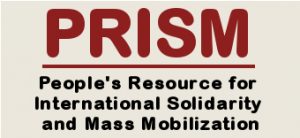
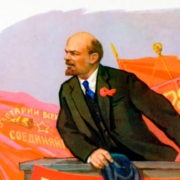
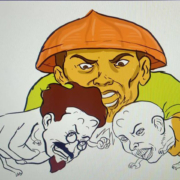
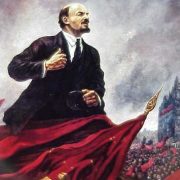
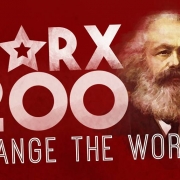
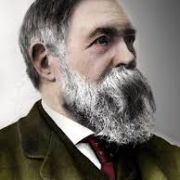


Leave a Reply
Want to join the discussion?Feel free to contribute!